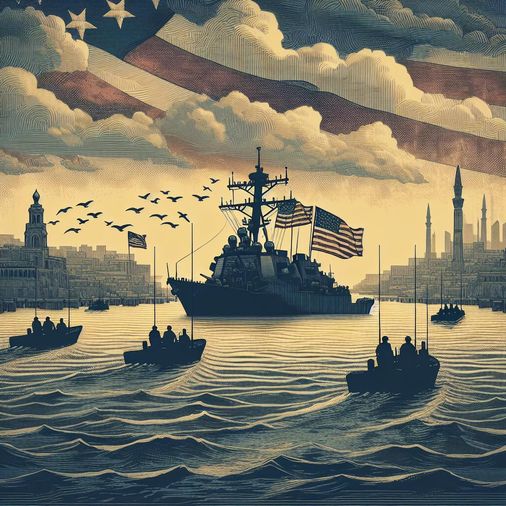Heightened Tensions: U.S. Naval Presence in the Middle East Amidst Israeli-Iranian Conflicts

In a significant escalation of military presence in the Middle East, the United States has dispatched the missile-armed submarine USS Georgia to the region, a move confirmed by Secretary of Defense Lloyd Austin during a phone call with Israeli Defense Secretary Yoav Gallant. Along with the submarine, the aircraft carrier USS Abraham Lincoln has been urged to expedite its journey to the area, indicating a strong U.S. commitment to regional stability amid rising tensions.
The Pentagon clarified that the USS Georgia has been assigned to the U.S. Central Command, which oversees operations in the Middle East and parts of Africa. This decision comes on the heels of increasing speculation regarding Iran's potential response to the recent assassination of Ismail Haniyeh, the political leader of Hamas, in Tehran. Although Israel has not claimed responsibility for this act, the event has triggered heightened anxiety amid the ongoing warfare between Israel and Hamas in the Gaza Strip.
The situation is further complicated by the recent liquidation of Fuad Shukr, the commander of Hezbollah, a Shiite militia backed by Iran. Hezbollah has long been allied with Iran, receiving financial and operational support from the country’s Revolutionary Guard. The deepening hostilities come after decades of increasing animosity; Iran and Israel were once allies until 1979, when the clerical regime took control and positioned Israel as its most significant adversary.
Today, Iran's opposition to Israel manifests through its financial backing of groups that are actively engaged in conflict against the Israeli state. Apart from Hamas, which governs the Gaza Strip, Iran also supports the Houthi movement in Yemen, adding more layers to the complex geopolitical landscape.
Despite these tensions, direct military confrontations between Iran and Israel have been relatively rare. Earlier this year marked one of the few instances when such hostilities erupted; Iran launched a drone attack on Israel that resulted in the death of one individual, with several others sustaining minor injuries.
As the international community watches closely, the movements of U.S. naval forces signal a robust response to rising regional instability. Observers speculate that the deployment of such military assets could serve to deter Iran’s potential retaliatory actions and support Israel amidst its conflicts with both Hamas and Hezbollah. The situation remains fluid as all parties assess the implications of recent events, and the potential for further military engagement looms large in the already volatile Middle Eastern landscape.
Related Sources:
